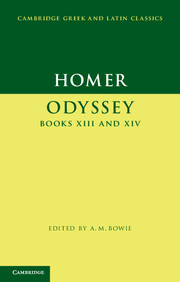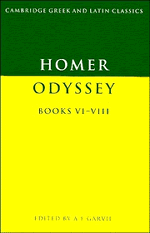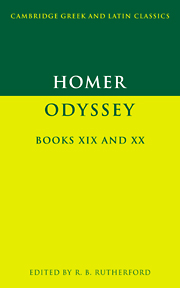Homer: Odyssey Books XIII and XIV
The second part of the Odyssey takes epic in new directions, giving significant roles to people of 'lower status' and their way of life: epic notions of the primacy of the aristocrat and the achievements of the Trojan War are submitted to scrutiny. Books XIII and XIV contain some of the subtlest human exchanges in the poem, as Athena and Odysseus spar with each other and Odysseus tests the quiet patience of his swineherd Eumaeus. The principal themes and narrative structures, especially of disguise and recognition, which the second part uses with remarkable economy, are established here. The Introduction also includes a detailed historical account of the Homeric dialect, as well as sections on metre and the text itself. The Commentary on the Greek text pays particular attention to the exposition of unfamiliar linguistic forms and constructions. The literary parts of the Introduction and the Commentary are accessible to all.
- Explains how these books prepare the ground for the whole of the second part of the Odyssey, which moves epic in new directions
- Provides a full introduction to Homeric dialect and extensive help with unfamiliar morphological and grammatical forms
- Gives the full cultural background required to understand the text
Product details
January 2014Paperback
9780521159388
270 pages
216 × 138 × 16 mm
0.34kg
1 table
Available
Table of Contents
- Introduction
- Text
- Commentary.





